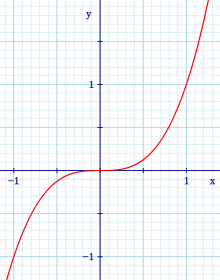
Lately there have been several top-flight articles in the international chess media about training for the improving player, highlighted here have been the interview on improving your chess with Boris Gelfand and the "How do you become a Life Master" blog post from Dana Mackenzie. Another recent one and well worth the read is "Chess Progress: making the big leap" by IM Albert Silver. Silver's take on improvement focuses in part on the phenomenon of plateauing, which is common to many long-term training programs. Essentially you get diminishing returns, or show little progress, for an extended period of time before making another significant incremental gain in performance - or the "big leap" of the article title.
This phenomenon is well-documented across a large number of disciplines, including martial arts and sports, so it should be no surprise that chessplayers have to deal with it as well. I've experienced it before in other contexts as well, including learning mathematics. I recall quite well the effort needed to truly absorb and understand more complex topics like calculus, where it took a lot of extra, sustained effort for me before a mental lightbulb went off and I was able to grasp and apply the concepts.
Part of the lesson to take away from a proper understanding of the phenomenon is that sustained, regular effort will in fact pay off in the end, as long as it can be considered "effortful study" - that is, not simply doing rote exercises or ones that are already comfortably in your knowledge base. The problem for me has been to free up enough time and energy to in fact concentrate on moving forward my chess knowledge and performance; for now, I don't feel like I'm making enough progress. As an adult chess improver, it's been work and travel that has often gotten in the way and sometimes there's no good way around that - the job takes precedence or sucks up the majority of your time and energy for a while. In fact, I'll be traveling for most of June and will be away from serious chess (and this blog) as a result. But I have hopes for the second half of this year that I can dedicate the requisite time and focus more regularly on chess training.
I'll conclude this post with what I think is a relevant observation from the Silver article, worth reading in its entirety (linked above).
Chess progress for beginners, or at the very least players who have never truly challenged their limits, is more about spurts and bursts than slow and steady. The size and depth of this burst is what varies the most. Sometimes that burst of results is a blip on the radar, a magic performance we are unable to sustain, and sometimes it is simply our new reality. The latter is what we all wish for. How do we achieve that leap forward, and how do we know we aren't simply 'stuck'?
No comments:
Post a Comment
Your comments and ideas on chess training and this site are welcomed.
Please note that moderation is turned on as an anti-spam measure; your comment will be published as soon as possible, if it is not spam.